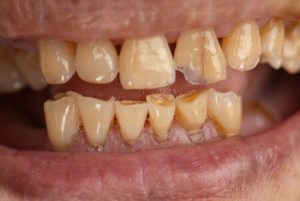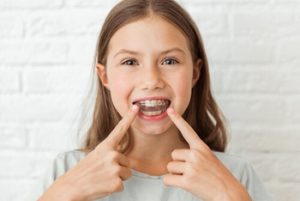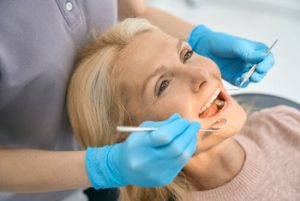Teeth grinding might seem like a minor annoyance at first; a partner hears your teeth clack at night or you wake up with jaw stiffness, but over time, bruxism can cause real damage. From worn enamel and fractured fillings to persistent facial pain, the consequences of clenching and grinding are far-reaching.
In recent years, muscle relaxants have emerged as a potential treatment for managing sleep bruxism, particularly in severe cases where standard methods fall short. But how effective are they, and who should consider this option?
This guide explains how muscle relaxants for bruxism work, when they’re recommended, and how they fit into a broader treatment plan tailored to your needs.
Understanding Bruxism: More Than Just Teeth Grinding
Bruxism refers to the involuntary clenching and grinding of the upper or lower teeth. It’s generally divided into two categories:
- Awake bruxism: which occurs during the day and is often linked to stress or concentration.
- Sleep bruxism: which takes place during sleep and may go unnoticed until signs appear, such as tooth wear or jaw pain.
While bruxism may be mild in some individuals, others experience chronic muscle tension, severe bruxism, or even temporomandibular joint disorder (TMD). In such cases, the repetitive strain on jaw muscles, facial muscles, and the temporomandibular joint (TMJ) can lead to complications affecting oral health and overall well-being.
The Muscles Responsible: What’s Happening in Your Jaw?
When we talk about bruxism, we’re primarily referring to the overactivation of certain jaw and facial muscles, especially the masseter muscles, which are responsible for chewing and jaw movement. During episodes of bruxism, these muscles engage in involuntary muscle contractions, often with a force that exceeds normal chewing pressure.

- Tight, tender jaw muscles
- Limited jaw movement
- Chronic headaches
- Neck pain
- Muscle spasms
- Facial pain
- Wear and damage to top and bottom teeth
Some individuals may even feel clicking or locking sensations in their jaw joints, signs of emerging temporomandibular joint disorder (TMD).
What Causes Bruxism?
Bruxism is not a one-cause condition. Instead, it’s often driven by multiple underlying causes, including:
- Stress and anxiety (especially in awake bruxism)
- Sleep disorders such as obstructive sleep apnoea
- Mental health conditions like depression
- Misaligned bite or dental crowding
- Poor sleep habits and sleep hygiene
- Genetic factors or family history
- Side effects from medications (e.g. SSRIs)
Addressing bruxism effectively means identifying and treating the root causes while managing symptoms.
Common Treatment Options: What Comes First?
Most dentists begin treatment with conservative options, including:
- Night guards or occlusal splints: These custom oral appliances prevent contact between the upper and lower teeth, reducing the risk of tooth damage and tooth wear.
- Relaxation techniques: Stress management strategies, including meditation, journaling, and exercise, can reduce muscle tension and frequency of clenching.
- Sleep hygiene improvements: Creating a calming bedtime routine and minimising screen time can lower night-time bruxism triggers.
- Talk therapy: For patients with anxiety, cognitive behavioural therapy (CBT) may be recommended to treat anxiety and associated jaw clenching.
- Behavioural strategies: For awake bruxism, training patients to recognise and stop daytime jaw clenching can be highly effective.
- Dental correction: In cases involving a misaligned bite, orthodontic work may help.
But when these options aren’t enough, especially for patients with chronic jaw muscle activity, muscle spasms, or temporomandibular disorders, muscle relaxants may be considered.
Muscle Relaxants for Bruxism: What Are They?
Muscle relaxants (also called muscle relaxers) are medications designed to reduce muscle contractions and calm overactive muscle fibres. In bruxism, they target the jaw and facial muscles that tighten excessively during sleep.
There are two primary categories:
1. Oral Muscle Relaxants
These are taken in tablet form before bed to reduce jaw muscle activity overnight. These work by acting on the central nervous system to reduce muscle tension, especially in cases where bruxism is linked to anxiety or sleep disturbances.
2. Botulinum Toxin Injections
Also known as botulinum toxin injections, this treatment is minimally invasive and involves injecting a small dose of botulinum toxin directly into the masseter muscle.
The toxin temporarily weakens muscle contractions, reducing the intensity of jaw clenching without affecting normal chewing. Results usually last 3–6 months.
Are Muscle Relaxants Effective for Bruxism?

- Severe bruxism that does not respond to night guards or behavioural therapy
- Patients with muscle-related facial pain
- Individuals who cannot tolerate oral appliances
- Those with chronic jaw clenching or temporomandibular disorders
Muscle relaxants are not a cure. Instead, they’re a symptom management tool used in combination with other treatment options.
Benefits of Muscle Relaxants in Bruxism Treatment
When appropriately prescribed, muscle relaxants may offer:
- Reduced facial movements during sleep
- Decreased muscle soreness and jaw fatigue
- Less excessive wear on teeth
- Improved sleep quality in some cases
- Less interference from involuntary grinding and clenching
Botulinum toxin injections may also help break the cycle of overuse in the masseter muscle, offering longer-term relief when other interventions fail.
Potential Side Effects and Considerations
Despite their benefits, muscle relaxants carry risks. Common side effects include:
- Drowsiness or grogginess
- Dizziness
- Dry mouth
- Fatigue or weakness
- Dependency or tolerance (especially with benzodiazepines)
Botulinum toxin injections, while generally safe, can occasionally cause:
- Temporary muscle weakness
- Asymmetry in the jaw or smile
- Difficulty chewing tough foods
For this reason, bruxism muscle relaxants should only be used under the guidance of trained dentists. They are not suitable for every case, especially for children or individuals with certain mental health conditions or medication sensitivities.
Are Muscle Relaxants Safe for Long-Term Use?
When considering muscle relaxants for bruxism, many people wonder about the long-term impact on their body, muscles, and oral health. The answer depends on the specific muscle relaxant used and how it’s administered.
For example, oral muscle relaxers may be prescribed short-term to ease jaw clenching, muscle spasms, and facial pain during sleep. However, these drugs can lead to dependency, drowsiness, or interactions with treatments for other mental health conditions. That’s why most dentists recommend them only as a temporary support measure, not a standalone solution to treat bruxism.
Botulinum toxin injections, on the other hand, are minimally invasive and target the masseter muscles or facial muscles directly. The injections reduce muscle activity without broadly affecting the nervous system. Over time, they may even retrain the muscles responsible for jaw movement and clenching and grinding, reducing your reliance on oral medication. Still, results vary, and this form of treatment needs to be repeated every few months for ongoing benefit.
Regardless of which option is chosen, muscle relaxants work best when paired with night guards, stress management, and evaluation of sleep disorders like obstructive sleep apnoea, which are common underlying causes of sleep bruxism.
Routine follow-ups allow your dentist to monitor for signs of tooth wear, tooth damage, or changes in your jaw joints that could indicate developing temporomandibular disorders. This kind of early intervention supports long-term stability, comfort, and function, giving you a strong opportunity to address bruxism holistically and safely.
When Should You Consider Muscle Relaxants?
You might be a candidate if:
- You’ve tried occlusal splints or night guards with little success
- You experience chronic headaches, jaw stiffness, or facial pain
- You have temporomandibular joint pain with no structural damage
- Your clenching and grinding continue despite behavioural therapy
- You have difficulty sleeping due to jaw muscle discomfort
In such cases, a muscle relaxant may be part of a broader care plan, ideally paired with sleep hygiene, stress reduction, and dental support.
Complementary Strategies for Managing Bruxism
In addition to medications, other supportive approaches include:
- Contingent electrical stimulation: A newer technique using mild electrical signals to inhibit jaw activity during sleep.
- Low-level electrical stimulation: Gentle pulses encourage muscle relaxation and reduce night-time bruxism.
- Biofeedback devices: These monitor jaw activity and vibrate or alert users when clenching is detected.
- Relaxants for bruxism + therapy: Pairing medication with stress management or talk therapy helps tackle the root causes, not just symptoms.
Early Intervention Matters

- Tooth damage and fractures
- TMJ degeneration
- Facial asymmetry from overworked facial muscles
- Disrupted sleep and fatigue
- Increased risk factors for long-term TMD
If you or someone you love is struggling with teeth grinding, jaw clenching, or related symptoms, don’t wait for complications. Speak to your dentist about your options, including whether muscle relaxants are right for your case.
Final Thoughts: Finding the Right Treatment Plan
While muscle relaxants for bruxism aren’t suitable for every patient, they can offer real relief when used as part of a broader plan, especially for those struggling with persistent jaw and facial muscle tension.
If you’re concerned about chronic teeth grinding or want professional guidance on protecting your jaw joints and long-term oral health, book a consultation with us at Advanced Dental Care Dubbo or call (02) 6188 7103. Together, we’ll help you find a personalised, effective way to manage bruxism and improve your sleep, comfort, and quality of life.
Resources
Begum, J. & WebMD Editorial Contributors (2023). ‘TMJ Disorder: Symptoms, Causes, and Treatment Options’. WebMD, 7 November. New York, NY: WebMD LLC. https://www.webmd.com/oral-health/temporomandibular-disorders-tmd
NHS (2022). ‘Teeth Grinding (Bruxism)’. NHS, 27 June. London, UK: National Health Service. https://www.nhs.uk/symptoms/teeth-grinding/
Cleveland Clinic (2023). ‘Muscle Relaxers’. Cleveland Clinic, 7 February. Cleveland, OH: Cleveland Clinic Foundation. https://my.clevelandclinic.org/health/treatments/24686-muscle-relaxers







